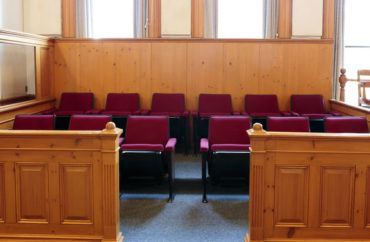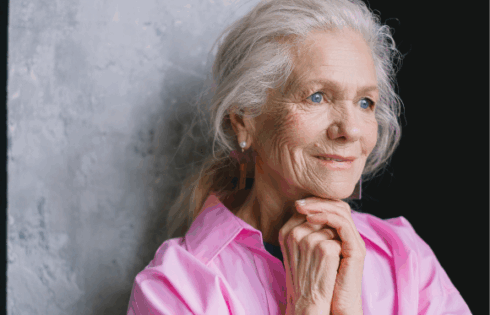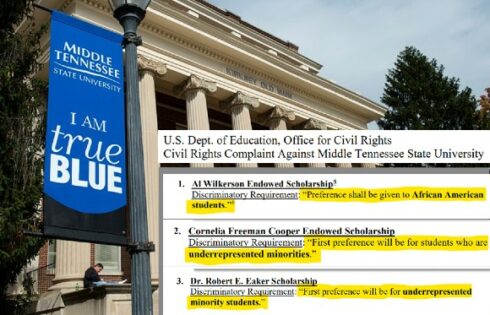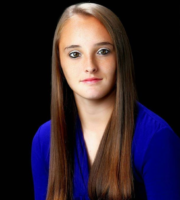
Campus official testified the adjudication was not ‘a search for truth’
After a trial judge seemed to favor Boston College in a due-process lawsuit brought by a student accused of sexual assault, the student came out victorious Monday in his jury trial.
The jury awarded “John Doe” more than $100,000, according to the verdict form: just under $25,000 for lost tuition the semester of the disputed incident, and about $77,600 for lost income from a “set back” of one year from his planned start to law school.
An adjudication panel at the private college had struggled to reach a verdict in the proceeding against Doe, leading a senior administrator to discourage the panel from reaching “no finding.”
Another senior administrator suggested the panel should put a different potential suspect “at ease” when he came in to testify against Doe, who claimed this “prime alternative culprit” should have been investigated as well.
The 1st U.S. Circuit Court of Appeals reinstated the lawsuit, citing the behavior of the senior administrators, after U.S. District Judge Denise Casper threw it out.
Last week’s jury trial was the first stemming from a due-process lawsuit by an accused student since the Obama administration issued sweeping new guidance on campus sexual assault proceedings in 2011, according to Brooklyn College Prof. KC Johnson, who chronicles Title IX litigation.
Casper had “significantly restricted the number of witnesses” Doe was allowed to present, including “virtually all of his experts,” Johnson tweeted.
It’s “doubtless” that this limited the damages awarded to Doe by the jury, he said, which deliberated for four hours and was only allowed to consider two narrow issues: breach of contract and “basic fairness.”
On the other hand, because Casper’s earlier rulings “aggressively favored” Boston College, “it’s hard to see what grounds the college could have for appealing this ruling,” said Johnson, co-author of The Campus Rape Frenzy.
A spokesperson for the college emphasized that the trial did not involve “a claim of discrimination under Title IX,” which the 1st Circuit declined to resurrect. It simply concerned a “breach of contract under Boston College’s disciplinary procedures.”
In an email to The College Fix, the spokesperson said the college was “disappointed by the verdict” and believes it is “contrary to the evidence presented at trial on the very narrowly defined issues before the jury.” It will discuss “the matter internally to determine its options going forward.”
Among the disclosures that likely swayed the jury: Hearing chair Catherine-Mary Rivera testified that adjudicators did not see the disciplinary hearing “as a search for truth,” but were tasked with deciding if it was more likely than not that Doe violated the student conduct code.
MORE: Judge may have violated 1st Circuit orders as trial begins
Preliminary rulings from judge had significantly restricted the number of witnesses plaintiff was allowed to present (virtually all of his experts were excluded), doubtless affecting the monetary award's size.
— KC Johnson (@kcjohnson9) September 23, 2019
Not contractually required ‘to hear Doe’s side of the story prior to the hearing’
The dispute goes back to 2012, when Doe was accused of violently groping another student while crossing a crowded dance floor on a student leadership cruise.
Right after the female victim screamed, Doe claims the student he identifies as the “alternative culprit” – known in court documents as “JK” – tacitly admitted to Doe that he had groped her.
Doe was arrested, but the charges were dropped after video evidence and forensic analysis led prosecutors to believe he was innocent, according to campus newspaper The Heights, which covered the lawsuit and full trial.
Despite this, the college found Doe responsible for “indecent assault and battery” – the same charge from the dropped criminal case – and suspended him for a year. That was “a lesser finding than the penetrative assault that had been alleged,” The Heights said.
Boston College’s proposed jury instructions said it was not contractually obliged to take several actions that could have exonerated Doe, including for then-Associate Dean of Students Carole Hughes “to hear Doe’s side of the story prior to the hearing” or for the school to “proceed with the hearing prior to the end of the criminal investigation.”
MORE: 1st Circuit slaps down Boston College
Hughes testified that Doe told her at their first meeting that it was “a case of mistaken identity,” but that she didn’t realize he was identifying JK as the culprit.
She was the official who suggested that adjudicators should put JK “at ease,” which Doe’s lawyers claimed interfered with his primary defense that JK was the culprit. Rivera, the hearing chair, testified that she doesn’t remember getting this message from Hughes, though.
“Remarkable what the college deemed irrelevant to a fairness claim–but unsurprising in a case where the BC hearing panel chair openly testified that she did not see her panel’s role as reaching the truth of what happened,” Johnson tweeted.
At the beginning of the trial on Sept. 16, Casper told the jury to “consider only whether administrators improperly interfered in two key communications with the head of the Administrative Hearing Board” that would have taken away basic fairness from John Doe, The Heights reported.
The jury heard Doe’s argument that JK allegedly assaulted the victim, but only as “background information.” Jurors were to consider only “whether a contract—both explicit and implicit—existed, whether there was a breach of contract, and whether Doe is owed damages.”
https://twitter.com/samk_harris/status/1176249699902394369
‘Jury attitude has shifted,’ as shown here and in Oberlin case
Officials testified that they didn’t find many of the witnesses credible in the investigation, making it more difficult to reach a verdict.
Rivera asked Hughes in November 2012 if “no finding” was an option because the panel members were not leaning towards “responsible” or “not responsible.” Hughes responded that Paul Chebator, then-dean of students, said it would be “discouraged” to have a “no finding” result.
Even though Hughes wanted JK put “at ease,” the panel members were very uneasy about JK’s story, according to The Heights.
They told the jury that they “had questions about JK’s honesty” because he kept changing his story “in regard to whether or not he blacked out on the night of the cruise and his claim of lying to Doe that he blacked out.”
They had serious doubts on the accuracy of each witness’s testimony considering how drunk they could have been that night. The most credible witness and only person who was sober, the victim’s friend “Betsy,” testified that she didn’t witness the groping and placed “three or four people” between Doe and the victim.
The college’s lawyers emphasized to jurors that this case was not about criminal proceedings, but only about the communication between administrators.
MORE: BC will face jury for allegedly railroading accused student
Assistant Dean for Conduct Christine Davis never told Rivera to put JK “at ease,” they argued, while saying that these “instructions fit into the Administrative Hearing Board’s existing plan to question JK as a witness, not a suspect.”
Davis told the jury that she did not tell Rivera to put JK “at ease” and she did not take Hughes’ request to say that “as an order,” according to The Heights. Doe’s lawyers questioned whether a person six days on the job – Davis was a new hire – would interpret Hughes’ email as a “casual observation.”
In the conclusion of their argument, in case the jury ruled in favor of Doe, college lawyers argued there was no economic harm done to Doe since he came back to school and finished his degree.
The verdict shows the new danger for colleges in facing juries, one expert told Inside Higher Ed.
Peter Lake, director of the Center for Excellence in Higher Education Law and Policy at Stetson University, noted the steep jury award against Oberlin College for defaming a local bakery.
“Jury attitude has shifted, and it’s not going to be lost on people that the political dialogue of the day is clearly having an influence in the courtroom,” he said.
MORE: Judge blocks BC student suspension, says he’s likely to win
IMAGE: ggw/Shutterstock
Like The College Fix on Facebook / Follow us on Twitter






Please join the conversation about our stories on Facebook, Twitter, Instagram, Reddit, MeWe, Rumble, Gab, Minds and Gettr.